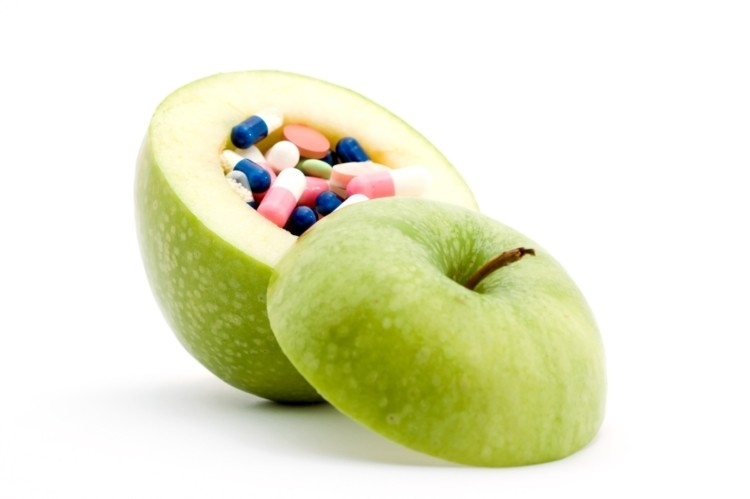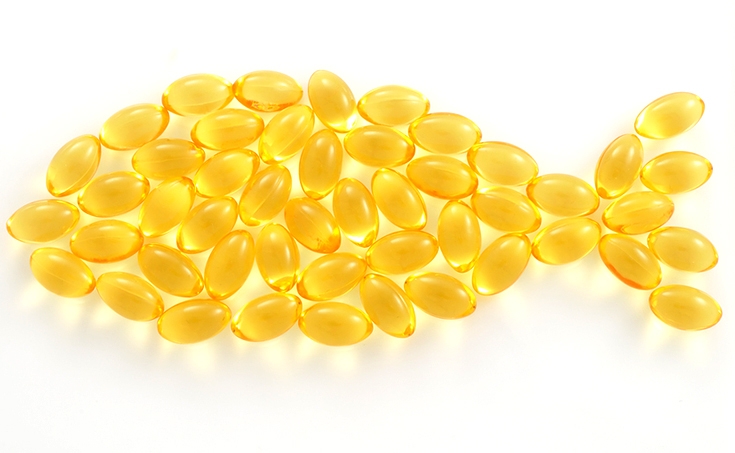You are viewing 1 of your 1 free articles. For unlimited access take a risk-free trial
Why full-fat dairy foods are okay: another nail in the 'eat low-fat' coffin

It was only a couple a months ago that we reported on new research suggesting that eggs and dietary cholesterol were absolutely NOT associated with an increased risk of heart disease (see here) . In that article, we also revisited some 2016 research, which indicated that ditching full-fat foods naturally rich in saturated fat (such as full-fat cheese and milk, red meats etc - not processed foods with added fat) and swapping them for low-fat alternatives offered no health benefits [ American Journal of Clinical Nutrition, Volume 105, Issue 1, January 2017, P85–99].
In this study, the researchers found that the very high intake of total and saturated fat of the high-fat diet didn’t increase the risk of cardiovascular disease; in fact in some respects, it LOWERED it. Fascinatingly, when subjects ate a very-high-fat diet, they had substantial improvements in several important measures of cardiovascular health, abdominal fat storage, blood pressure, blood fats, insulin and blood sugar – improvements that were not observed when subjects consumed a high-carbohydrate, low-fat diet. The researchers concluded by stating: “The alleged health risks of eating good-quality, unprocessed saturated fats have been greatly exaggerated. It may be more important for public health to encourage reductions in processed flour-based products, highly processed fats and foods with added sugar."
New research: dairy fat is okay
In the last two years, there's been little change to the health guidelines on saturated fat consumption. For example, here in the UK, the NHS guidelines say: "Too much fat in your diet, especially saturated fats, can raise your cholesterol, which increases the risk of heart disease.Current UK government guidelines advise cutting down on all fats and replacing saturated fat with some unsaturated fat." In the US meanwhile, the 2015-2020 Dietary Guidelines for Americans currently recommend "serving fat-free or low-fat dairy, including milk, cheese, yogurt, and/or fortified soy beverages."However, another new study published by US scientists just two days ago drives another nail into the coffin of the 'saturated fat is bad' mantra [academic.oup.com/ajcn/advance-article-abstract/doi/10.1093/ajcn/nqy117/5052139?redirectedFrom=fulltext]. Conducted at the University of Texas Health Science Center at Houston, nearly 3,000 adults age 65 years and older were tracked over a 22-year period to see how multiple biomarkers of fats present in dairy fat related to their subsequent risk heart disease and death. Importantly, the measurement methodology was more objective and precise that the commonly used 'self-reported consumption' techniques often employed in these kinds of studies, thus providing a higher level of evidence.
The key finding of this study was that there was absolutely no link between dairy fat consumption and cause of death or, more specifically, heart disease and stroke - two of the main causes of early death in the West, and which have previously been associated with a diet high in saturated fat. In fact, the researchers drew the opposite conclusion - that certain types of dairy fat (in particular, a fatty acid known as heptadecanoic acid) was inversely associated with heart disease and death from stroke. In other words, higher intakes of this saturated fat actually lowered the risk of heart disease and stroke - by up to 42%. Moreover, this is not the only recently published study to suggests that saturated fat from dairy produce is not a risk factor for heart disease. A recent meta-study (a study that looks at all the previous research on a topic and pools the data) found that higher dairy fat consumption is NOT associated with an increased risk of heart disease or stroke [Crit Rev Food Sci Nutr. 2018 May 3;58(7):1122-1130].
Advice for athletes
As we pointed out back in May, a high-fat diet is not really recommended for athletes. Not for any health reasons but simply because consuming lots of fat calories will inevitably displace carbohydrate calories from your diet – carbohydrate that you need to fuel your training and competition. But what it does mean is that providing your carbohydrate needs for training are fulfilled, there’s no need to avoid unprocessed saturated fat - far from it. If you prefer butter on your toast instead of the chemical-laden low-fat spread alternatives, a full-fat latte instead of a skinny, whole milk instead of skimmed, cream on your fruit salad instead of ice cream, full-fat cheddar instead of cottage cheese then fill your boots because the evidence suggest that it’s not going to harm your health. Indeed, the real health hazard could be overindulging in low-fat foods with buckets of added sugar or a diet high in refined and/or processed carbohydrates, which inevitably also come with plenty of added - but hidden - sugar!Andrew Hamilton, Sports Performance Bulletin editor
Newsletter Sign Up
Testimonials
Dr. Alexandra Fandetti-Robin, Back & Body Chiropractic
Elspeth Cowell MSCh DpodM SRCh HCPC reg
William Hunter, Nuffield Health
Newsletter Sign Up
Coaches Testimonials
Dr. Alexandra Fandetti-Robin, Back & Body Chiropractic
Elspeth Cowell MSCh DpodM SRCh HCPC reg
William Hunter, Nuffield Health
Keep up with latest sports science research and apply it to maximize performance
Today you have the chance to join a group of athletes, and sports coaches/trainers who all have something special in common...
They use the latest research to improve performance for themselves and their clients - both athletes and sports teams - with help from global specialists in the fields of sports science, sports medicine and sports psychology.
They do this by reading Sports Performance Bulletin, an easy-to-digest but serious-minded journal dedicated to high performance sports. SPB offers a wealth of information and insight into the latest research, in an easily-accessible and understood format, along with a wealth of practical recommendations.
*includes 3 coaching manuals
Get Inspired
All the latest techniques and approaches
Sports Performance Bulletin helps dedicated endurance athletes improve their performance. Sense-checking the latest sports science research, and sourcing evidence and case studies to support findings, Sports Performance Bulletin turns proven insights into easily digestible practical advice. Supporting athletes, coaches and professionals who wish to ensure their guidance and programmes are kept right up to date and based on credible science.











